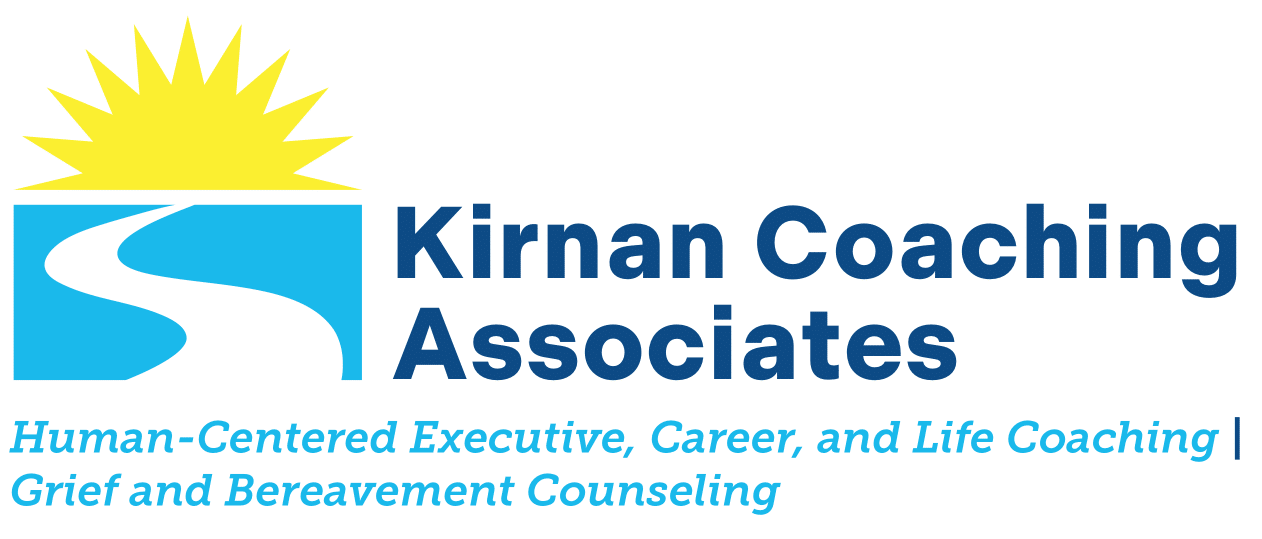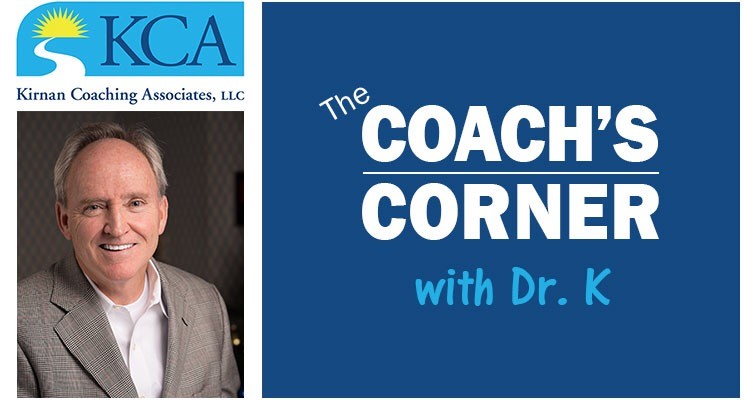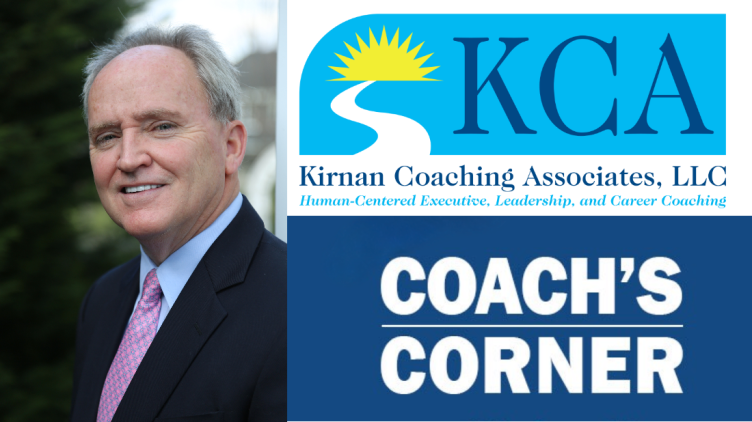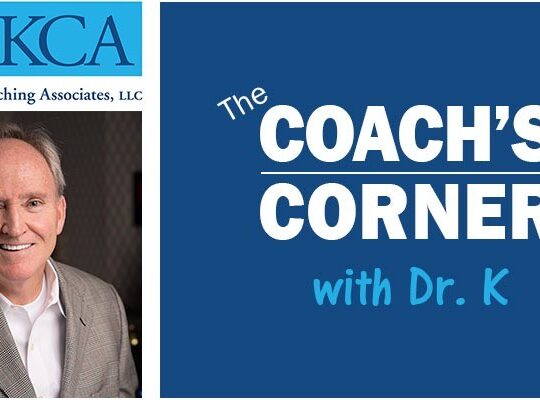Way back in January 1987, then Vice President George H. W. Bush was contemplating a run for President to succeed Ronald Reagan. Time magazine ran a cover story that month entitled “Where is the Real George Bush?” The article included an anecdote from one of Bush’s senior advisors who when discussing the upcoming campaign, made a suggestion to Bush that he should go to Camp David for a few days and think strategically about where he would like to take the country as President, to which Bush replied “Oh, the vision thing.”
That phrase, fairly or unfairly, has followed the former President throughout the years. Some commentators still believe that a lack of a clear vision of where he wanted to take the country cost him reelection in 1992. Over the past 25 years, “The Vision Thing” is a term that has extended its reach well beyond the political realm into the corporate world where management consulting firms preach to their clients the virtues of articulating a clear, well-defined company vision statement of where the leadership team wants to take the company in the future along with a strategic plan that includes specific, measurable performance metrics to help evaluate whether that vision is being realized. These powerful concepts, and especially the importance of having a clearly articulated vision, apply equally well to the thriving start-up world where entrepreneurs believe they hold the keys to the next “big idea” and even to the nonprofit and philanthropic arena. Vision helps set future direction; it maps a destination of where the company wants to go. Strategy links the current reality of the company to that destination envisioned in the future and provides a GPS or compass for everyone in the organization to follow. Action steps must be clearly defined for every stakeholder group. What will be done and by whom? When will each action be done? And, finally and equally relevant, what resources will be needed to support each of the contemplated tasks?
Life in the Bubble
Helping clients develop a vision of what they want in their personal and/or professional life is one of the most important and gratifying roles coaches’ play. Looking back on my own journey, I realize now that I never really thought much about “the vision thing” until I went through my certification programs in Personal, Executive, and Career coaching at NYU and the Five O’Clock Club. Like many of you, I was pretty focused on setting specific annual goals, even writing them down every New Year’s Eve in a journal I kept. My goal-setting process was not very sophisticated but rather singularly focused on my family and career in financial services and then later on in my various roles in education management. In all of my positions, I would undertake a self-assessment of my performance and commit to specific goals as part of my personal development plan for the following year. When I transitioned to a management role during the late 1990s, I spent an increasing amount of time helping to develop and implement a more formalized employee evaluation system, complete with 360 feedback mechanisms that could help employees set specific goals, target new behaviors, and improve the alignment between performance and compensation levels.
By contrast, a visioning exercise is so much deeper and broader than just assessing your performance or simply writing down your specific goals for the next year. In fact, as I mentioned to many of my fellow coaching colleagues recently, developing a vision for your future forces you to think outside the “bubble” that many of us tend to create for ourselves. I am sure you have heard of that expression “the bubble” before, especially in the political arena where we hear commentators on cable TV and on talk radio speak incessantly of “the Washington bubble” (For some fascinating insights, please see Mark Leibovich — This Town: Two Parties and a Funeral — Plus, Plenty of Valet Parking in America’s Gilded Capital for a real insider’s view of the ‘Washington bubble”). Over the years, my “bubble” centered exclusively on anything that I believed would directly impact either my family or my career.
However, during the last few years, I feel as if my head finally pierced through my own little “bubble”, in effect allowing me to peer above the “bubble” and to see the humanity in everyday life that was always there right in front of me but much of which I had failed to see. That humanity on display every day is now as crystal clear as an Ultra HD TV screen – the inherent goodness of people, the love and care we have for each other, the compassion we have for those less fortunate than us, our ability to empathize, to share friendship and fellowship, and the many random acts of kindness we may see in any given day. But I can also see much more vividly some of the darker forces at play in people’s daily lives – loss, heartache, illness, separation, failure, fear, the unexpected. My enhanced level of awareness has come from intense reflection and a deep desire to define what I want my vision of life to be at the age of 60. It’s as if that beautiful phrase from that great hymn Amazing Grace was working its magic on me during this process of self examination – “…I was blind, but now I see”.
Creating Your Own Unique Vision Board
The desire to define a vision reflected a variety of things that seemed to converge all at once like losing my Dad a few years ago, the sudden onset of the empty nest syndrome and that difficult transition to decide what might be next in the arc of your life, and the growing responsibility that comes with caring for your aging parents and in-laws — the so-called “sandwich generation effect”. Defining your own unique vision can seem daunting at first glance but there are many life and career experiences that you can draw from as well as numerous books, songs, and yes even movies that might stimulate your thought process and get all of your creative juices flowing.
During one of our classes in NYU’s Coaching Certificate Program, we had to create a Vision Board as a final project and I can honestly say that it was an exhilarating experience, one I highly recommend for all of you to consider doing on your own. Essentially you look for photos of all the things that are really important to you from either your own personal collection or those you might find online from websites like Tumblr or Pinterest. You can then post your photos on an oversized poster board or include them in a PowerPoint or Prezi presentation. Some of the introspective questions that you can ask yourself that may help define your own vision of the future are:
- Who are you and what are your major roles in life? – Husband/wife, father/mother, son/daughter, friend/colleague, philanthropist, mentor, caregiver, etc.
- What’s really important to you at this moment in your life – your spouse/significant other, children, parents, other family members, friends, church, finances, health, where you live?
- What values define who you are and are those values aligned with the other major components in your Wheel of Life?
- What do you like to do for fun – exercise, socialize with friends, listen to music, watch movies/TV, read, etc.?
- Which people in your life give you energy or drain your energy?
- What are your biggest fears and self-limiting beliefs that may hold you back or have you feeling as if you are stuck in neutral?
- Do you know what your personal strengths are as well as your weaknesses?
- What would you do if you knew you couldn’t fail? Or alternatively, what would you do if you were brave?
The poster board option can be really powerful as I witnessed first hand because it allows you to frame the Vision Board and hang it on a wall in your home as a reminder of the future you envision for yourself. Watching my fellow classmates share their passion, their creativity and their unique life vision was one of the most powerful learning experiences in my lifetime.
It’s amazing how liberating it can be to just sit down for an hour with your laptop, Ipad, or even just the traditional yellow legal pad and write down your initial thoughts on these basic questions. You can always allow yourself additional time to review and edit your draft vision – e.g., in a few days, a week, or even a month — but if you do allow yourself that freedom to reflect and explore, you will find yourself adding new insights, refining and expanding your earlier thoughts, and ultimately feeling more comfortable with the vision you have begun to lay out for your future. Your vision statement can also serve as a powerful framework for helping you set specific goals in your personal and professional life that align with your unique vision.
Resources That Can Help You Define Your Vision
There’s a wealth of resources you can draw from that will help you reflect and hone in on the things that are most important to you. Since I had witnessed lots of life-defining experiences in such a short period of time and had recently turned 60, I decided to focus initially on my spirituality. So in my quest to define a Vision of Life at 60, I began to focus on what in Catholicism is referred to as “an examination of conscience”. I wanted to delve more deeply into understanding the concepts of grieving and loss, forgiveness (the asking as well as the granting), and caregiving. So I turned to a number of books that really energized me and allowed me an opportunity to explore these concepts more deeply than I ever had before. Some of the books and CDs that were really helpful included Fr. Martin Padovani’s The 12 Steps of Forgiveness and Healing Wounded Relationships; Vincent Youngberg’s, From Fragmentation to Wholeness; Jane Gross and her bestseller, A Bittersweet Season: Caring for Our Aging Parents; Lee Kravitz Unfinished Business: One Man’s Extraordinary Year of Trying to Do the Right Things; and, one of the best books I have ever read — Mitch Albom’s Tuesdays with Morrie. It was an amazing experience to read and reflect on these books because I quickly realized that all of the emotions I was feeling in my everyday life were actually quite common. There’s something really comforting and bonding in knowing that there are lots of people who are going through the same emotions, fears, and worries that you are dealing with.
As my visioning process continued to unfold, I turned my sights to the nature of fear and the role that our self-limiting beliefs can play in our daily lives. Two books that I strongly recommend and were eye opening for me were Brene Brown’s The Gifts of Imperfection and Matthew Kelly’s Becoming the Best Version of Yourself. I found myself increasingly drawn to the notion that we all have imperfections – it’s not something that only I struggle with — and that our imperfections are what make us more human. Deep down, all of us in our own way are trying to become a better person or the best version of ourselves we can possibly be. And so as I was focusing on my own imperfections and failings, I found myself increasingly drawn to people like me who fall down in life for one reason or another but somehow find the courage, spirit, and resolve to get back up again and live life again. This pattern of falling down and then getting back up again is captured beautifully by a late 1990s hit song Tubthumping by British punk rock band Chumbawamba and their popular refrain “I get knocked down but I get up again, your never going to keep me down”. I also found a growing interest in the role that neuroscience can play in the way we behave and how the brain has the capacity to create new wiring that can change old habits and patterns of behavior. (Please see Coaching With the Brain in Mind: Foundations for Practice by David Rock and Linda Page)
These books and my reflections on how their content and meaning applied to my own experience led me to two other powerful books that allowed for an even deeper introspection on what really matters to each of us in our lives – David Brooks The Road to Character and Erik Kolbell’s If Your Life Was on Fire, What Would You Save. Brooks talks about the struggle between what he calls our Adam 1 and Adam 2 tendencies and he draws a powerful contrast between the resume building values we all focus on to get ahead in life and career (e.g., to get the best job and our unending quest to acquire all of the trappings of material success and wealth) with the eulogy values – i.e., what are the things that at the end of our life people will remember you for — qualities like compassion, generosity, humility, unselfishness. The book examines the lives of 10 of the world’s greatest leaders and thinkers and explores the many different ways one can embark on the road to a life of character.
In Kolbell’s book, you are asked to imagine that your house is literally on fire and you have about one minute to figure out what you would save as the fire takes root and destroys the house. The question is then posed what would you save? Would you focus on saving physical objects and possessions or something that is deeper and perhaps more spiritual? Kolbell presents the unique insights of 13 people from different walks of life – some whose names you will recognize like the actor Alan Alda or the journalist Jane Pauley to some ordinary people like you and I – and we see the broad range of things that different people would save. The book allows you to visualize your own life as a fire. I am sure all of us can relate to different periods in our life and career where we felt as if things were literally on fire. It’s an incredibly powerful and insightful way to help us clarify what’s real and unreal in our lives? What’s really worth saving? Kolbell’s book and the powerful question it asks us has led many people to go online and share a photo of the very things they would save if their life was on fire. Sifting through other people’s photos of what they would save in a fire helps us reflect and dig even deeper for the things that we might save in a fire.
Movies and Their Power to Capture What’s Important in Your Life
Then there’s the movies we can probably all relate to in some way or another that helps us clarify what’s really important in our life – our family, our relationships, the activities we do for fun, the environment we live in, etc. Each of us I am sure has our own list of our favorite movies, whether they are in the drama, comedy, or action/adventure genre. My list is a very long one but a few that have helped me in my quest to define a Vision of Life at 60 are:
Ordinary People – a movie that won the Oscar for Best Picture that captures in raw emotional terms what a family experiences when tragedy hits home and a family member dies unexpectedly. Having lost an older brother myself who I was very close to when I was 17 years old, I was afraid to watch the movie when it first came out in 1980 and I didn’t actually see the movie until 1997. Once I saw the movie, I felt as if I knew what each character in the movie was going through, especially the role of Conrad played by Timothy Hutton because my family and I experienced the very same emotions that were captured brilliantly by the film’s main characters — Hutton, Donald Sutherland as the father, Mary Tyler Moore as the mother, and Judd Hirsch as Dr. Berger, Conrad’s therapist. The movie allowed me the opportunity to complete the grieving process that I had resisted for more than 25 years after my brother had passed and reminded me that all of our losses in life are truly cumulative – i.e., whenever we lose or grieve a loved one, we tend to relive all of the losses that came in an earlier time of our lives.
My Dog Skip – a movie as seen through the eyes of Willie Morris, a young boy growing up in the deep South and a heartwarming story of the love and friendship that develops between Willie and his dog Skip, a Jack Russell Terrier. It’s a story that touches on both the joy and heartbreak that comes with growing up and when Skip runs away, there’s a chance for Willie to learn the healing power of forgiveness and for Dink Jenkins, his next door neighbor and idol, an opportunity to embrace redemption. The closing scene where the camera zooms in on Skip lying down on Willie’s bed is as powerful and emotional as any scene I have ever watched, concluding with a narration by Willie years later as he reflected on what Skip had meant to him — “I received a trans-Atlantic call one day. Skip died, Daddy said. He and my mama wrapped him in my baseball jacket. They buried him out under the elm tree, they said. That wasn’t totally true. For he really lay buried in my heart.” How many people in either our earlier or current life, lay buried in our own hearts?
I can’t imagine any part of my life without my dogs at my side. There’s many other great movies that strike a similar chord of the central role dogs can play in our daily lives – Old Yeller, All Dogs Go to Heaven, Homeward Bound, Hatchi, and on the more comedic side of things, Must Love Dogs.
Jerry McGuire – there’s great scene where Jerry, the sports agent played by Tom Cruise, has the biggest day in his career by signing a prized athlete to a lucrative new contract but who feels it’s not complete because he can’t share it with the love of his life — his wife Dorothy played by Renee Zellweger. Jerry’s “You complete me” line and then Dorothy’s emotional response “You had me at hello”. There are so many inspirational movies in the sports genre that can be helpful in clarifying elements of a life vision, movies like Chariots of Fire, Field of Dreams, Rudy, March of the Titans, and The Blind Side to name just a few.
https://youtube.com/watch?v=UF5V2PEujqsframeborder%3D0allowfullscreen
It’s a Wonderful Life – a Holiday favorite for sure and we can feel the raw emotion in that final scene of the movie where the people of Bedford Falls give whatever they can to help George Bailey in his time of need. And, then that endearing quote from Clarence, his guardian angel that emphasizes the quest for true fellowship and friendship that many of us seek in life — “No man is a failure who has friends”.
Look Up – Well this is not a movie per se but a very provocative YouTube video that was made made by Gary Turk in 2014 that looks at how the preponderance of mobile devices in our everyday life can distract us away from the things we really crave – intimacy, friendship, fellowship, real connection and conversation.
Can Music Offer You Deep Insights?
Music can also provide deep insights into what we may want in our vision for the future – the unique sounds of the different instruments, the beat of the drums, and yes the beautiful lyrics that can capture the essence of what we may believe, feel, and experience in everyday life. It always amazes me how a particular song can bring you back to a place or period in your life complete with all of the emotions that the memory engenders. During my own visioning process, I realized how important music is in my everyday life and how it has allowed me to explore more of my creative side in some of the photo and video projects I have developed. Combining music with photos, video, and even learning how to narrate a storyline have become new passions of mine that I want to develop further in the years ahead.
Like many of you, I have lots of playlists that can cater to whatever mood I may be feeling at any moment. But there’s one song that really captivated me during my own vision quest and I hope it will resonate for you as it did for me. It’s a song written and performed by Jana Stanfield entitled If I Were Brave and the video includes some incredibly uplifting stories of women who tried new and exciting things at different points in their lives. The lyrics, the music and the powerful stories Stanfield shares, gives us hope and inspiration to be brave and try new things no matter what age we may be:
“IF I WERE BRAVE” by Jana Stanfield
What would I do, if I knew that I could not fail?
If I believed, would the wind always fill up my sail?
How far would I go? What could I achieve,
trusting the hero in me?
If I were brave, I’d walk the razor’s edge,
Where true believers dare to tread.
I’d never lose faith, even when losing my way.
What step would I take, today, if I were brave?
What would I do today, if I were brave?
What would I do today, if I were brave?
What would I do today, if I were brave?
What would I do today, if I were brave?
So My Friends –Be Not Afraid to Define Your Own Unique Vision for Life
Be Not Afraid is the most commonly repeated phrase found throughout both the Old Testament and New Testament and that phrase is the one I encourage my friends and colleagues to ponder. Be Not Afraid to invest the time you need and deserve to define your own unique vision of the life you want to live. It just might be the best gift you ever gave yourself and in doing so, you just might find the path to a happier and more fulfilling life. Be Not Afraid to reflect on where you’ve been and where you would like to go. Be Not Afraid to explore the unknown with curiosity, excitement and a sense that all things in your life are possible. Be Not Afraid to map out your dream, that vision of your life that you want to create for yourself and were meant to live. And maybe, just maybe, you can heed the refrain from that great song from Timbuk 3, The Future’s so Bright, I Gotta Wear Shades. I hope you can join me and my BFF Bob Kirnan and put on your sunglasses! Yeah baby!
Good luck, have some fun and find that unique vision that is just waiting for you to create and to live!
Warm regards,
Dr. K





